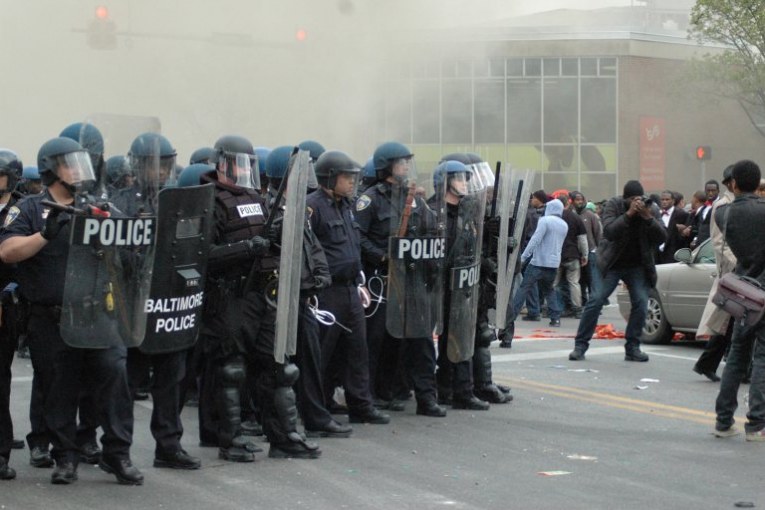

It seems like we have been asking this question since the founding of the Vanguard in 2006. Sometimes, we have moved forward, sometimes we have moved backward.
The situation in Sacramento is one that we have not had a chance to cover, but it marks a serious threat to police oversight everywhere.
In May 2017, Sacramento sheriff’s deputies fatally shot a mentally ill man, Mikel McIntyre. While Mr. McIntyre was throwing rocks at the deputies, they opened fire, hitting him seven times from rear, killing him.
As is often the case, Sacramento DA Anne Marie Schubert declined to file charges against the officers. But the issue is how Sacramento Sheriff Scott Jones has responded to the independent investigation headed by former Sacramento Police Chief Rick Braziel, serving as the inspector general of the sheriff’s department.
In August, the sheriff, apparently unhappy at the critical findings of Mr. Braziel, demanded the county remove him from his post.
“I’m not trying to diminish the expertise of experience of Rick Braziel as a person, former police chief and a friend, frankly. But this report was a departure,” said Sacramento County Sheriff Scott Jones.
Sheriff Jones then banned Mr. Braziel from the facility.
“He no longer has access to our facilities, our personnel, our records. He’s taken off the call-out list,” Jones said.
Columnist Marcos Breton writes in early September: “Is it beyond strange that Jones is trying to discredit Braziel, a national expert on police practices, by challenging his credentials and motives? It is, but Braziel committed the ultimate sin in Jones’ world view: He questioned whether  Jones’ officers needed to kill Mikel McIntyre, an emotionally disturbed African American man, in May of 2017.”
Jones’ officers needed to kill Mikel McIntyre, an emotionally disturbed African American man, in May of 2017.”
The County Board of Supervisors is not happy, but because Mr. Jones is an elected official, they are largely powerless to intervene.
This is of course a direct threat to police oversight and the Bee this week in a pointed editorial wrote:
▪ The Sacramento County Sheriff’s Office should be subject to independent investigations by the inspector general without preconditions or impediment.
▪ The Sacramento County Sheriff’s Office should immediately release all video in the McIntyre case, and adopt a policy of releasing video as the Sacramento Police Department has done.
▪ The Sacramento County Board of Supervisors should maintain a powerful role in the oversight and supervision of the sheriff’s office.
Unfortunately, this is not the only threat to police oversight.
Christian Sheckler and Ken Armstrong asked much the same question as we do this week in a December 1 op-ed in the New York Times. The two men are reporters who as part of a grant have covered the police department in Elkhart, Indiana.
There, a video last month was released of two officers punching a handcuffed man in the face – repeatedly. They write: “The episode was just the latest in a long-troubled police department where nearly all of its supervisors have disciplinary records.”
More importantly, they note: “This is the sort of problem that Congress sought to address in 1994 when it authorized the Justice Department to overhaul troubled local police agencies under court-monitored consent decrees. These agreements lay out a reform plan negotiated by federal law enforcement officials and the local government.”
Elkhart ends up with a similar problem as occurred in Sacramento. The mayor asked the Indiana State Police for a “very thorough and far-reaching” investigation of his police department. They  turned him down.
turned him down.
Next he asked the Justice Department for help. However, right before his plea for help, then-Attorney General Jeff Session “had sharply limited the Justice Department’s ability to use court-ordered agreements to address abuses by local police departments.”
This was one of his final actions before he stepped down last month.
Writes Mr. Scheckler and Mr. Armstrong: “Mr. Sessions was a longtime opponent of these agreements, complaining that they damaged police morale and smacked of federal overreach. But his critics say his last-minute move is likely to further the Trump administration’s efforts to impede police reforms nationally.”
The Obama administration used consent agreements on a consistent basis as part of their efforts to address misconduct allegations. Fourteen cities are currently under consent decrees.
But the writers warn that the Mayor of Elkhart “may be left on his own trying to fix a department with a tumultuous history.” He has to deal with a problematic and uncooperative department. He placed the chief on 30 days unpaid leave which puts the department in the hands of the assistant chief.
The assistant chief has his own list of violations: “[A] five-day suspension, seven reprimands and a two-step demotion, for making flippant comments about a fatal shooting. He said an officer who opened fire could now check that off his “bucket list,” according to his personnel file.”
They write: “The assistant chief has been unwelcoming of outside scrutiny. At a town hall meeting in November, he defended the police department while criticizing the news media. He said that when his department began receiving public records requests from one of us, the department’s reaction was: ‘Who is this guy? … What’s all this digging?’”
The police, he said, went to the city’s legal department and asked: “Does anybody know what’s going on? Everything’s going good in Elkhart. Why are they coming over here, into our backyard, and trying to disrupt everything we built?”
Sound familiar? As we saw with a long list of police shootings and the efforts to achieve a measure of justice – police oversight is hard when everyone is cooperative and the administration empowers the justice department to act on the behalf of justice. When that doesn’t occur, there is no system by which to hold those in power accountable for their mistakes.
—David M. Greenwald reporting

